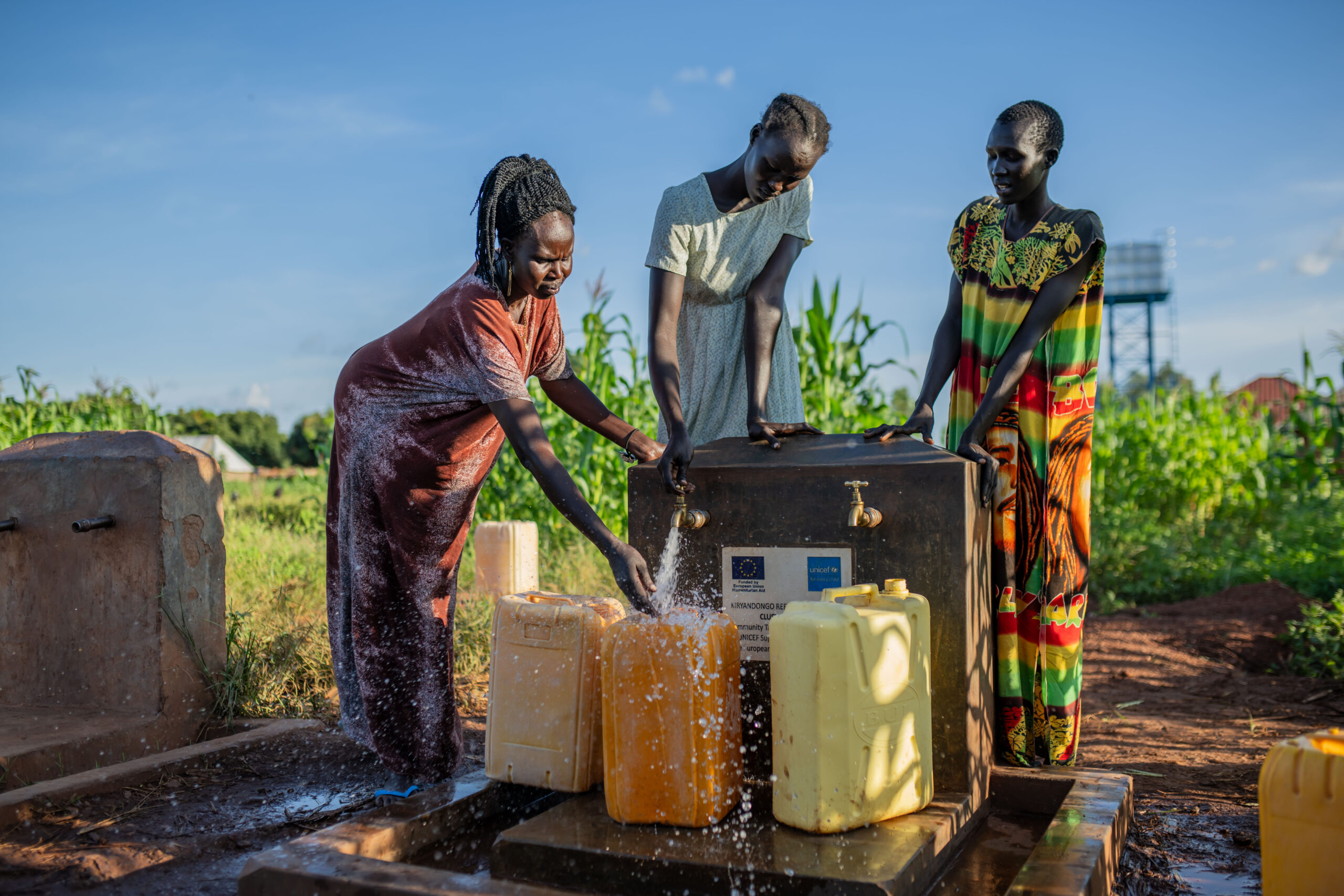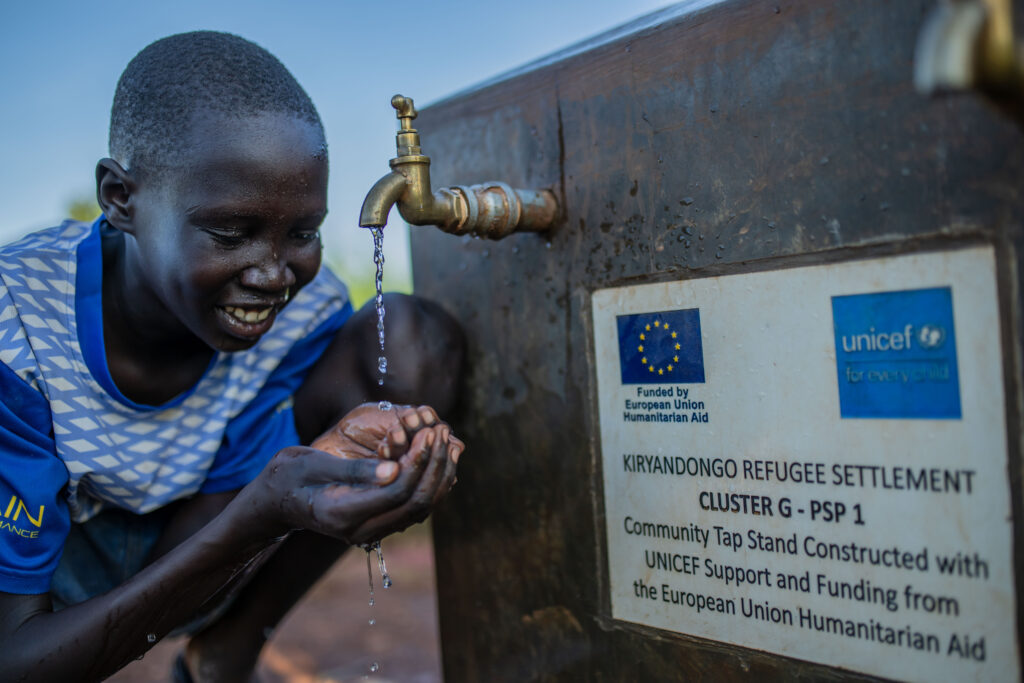
 Tiger FM
Tiger FM

 Tiger FM
Tiger FM
6 November 2025, 11:40 am

By Edwin Okurmu Kisa
Two newly installed solar hybrid piped water systems are transforming life for thousands of refugees and host communities in Kiryandongo Refugee Settlement, ending years of long treks and queues for water.
Funded by the European Union’s Civil Protection and Humanitarian Aid Operations (DG ECHO) and implemented by UNICEF in partnership with the Lutheran World Federation (LWF), the systems were completed between July and October 2025. They now supply safe, reliable water to Clusters C and G of the settlement, home to about 165,000 refugees from South Sudan, Sudan, the Democratic Republic of Congo, and Kenya.
The hybrid systems use solar-powered submersible pumps backed by diesel generators to draw water from deep wells into 108-cubic-metre reservoirs, supplying 22 public standposts through a 4.6-kilometre distribution network.
Refugee residents say the change is life-changing. “I used to walk three kilometres for water. Now I only walk a few metres,” said Habib Ahmad, a Sudanese refugee.
EU Humanitarian Aid Head Liam Kelly said the initiative reflects the EU’s commitment to “greening humanitarian aid” through sustainable energy and resilient infrastructure, while UNICEF Representative Dr. Robin Nandy hailed the project as “a fundamental step toward ensuring round-the-clock access to safe water.”
The systems are expected to raise per-capita water access from 9 to at least 20 litres per day, meeting international humanitarian standards. The project replaces expensive water trucking and will benefit local schools, including 4,000 learners at Canrom Primary School, while reducing disease risks and freeing women and children from long water collection journeys.